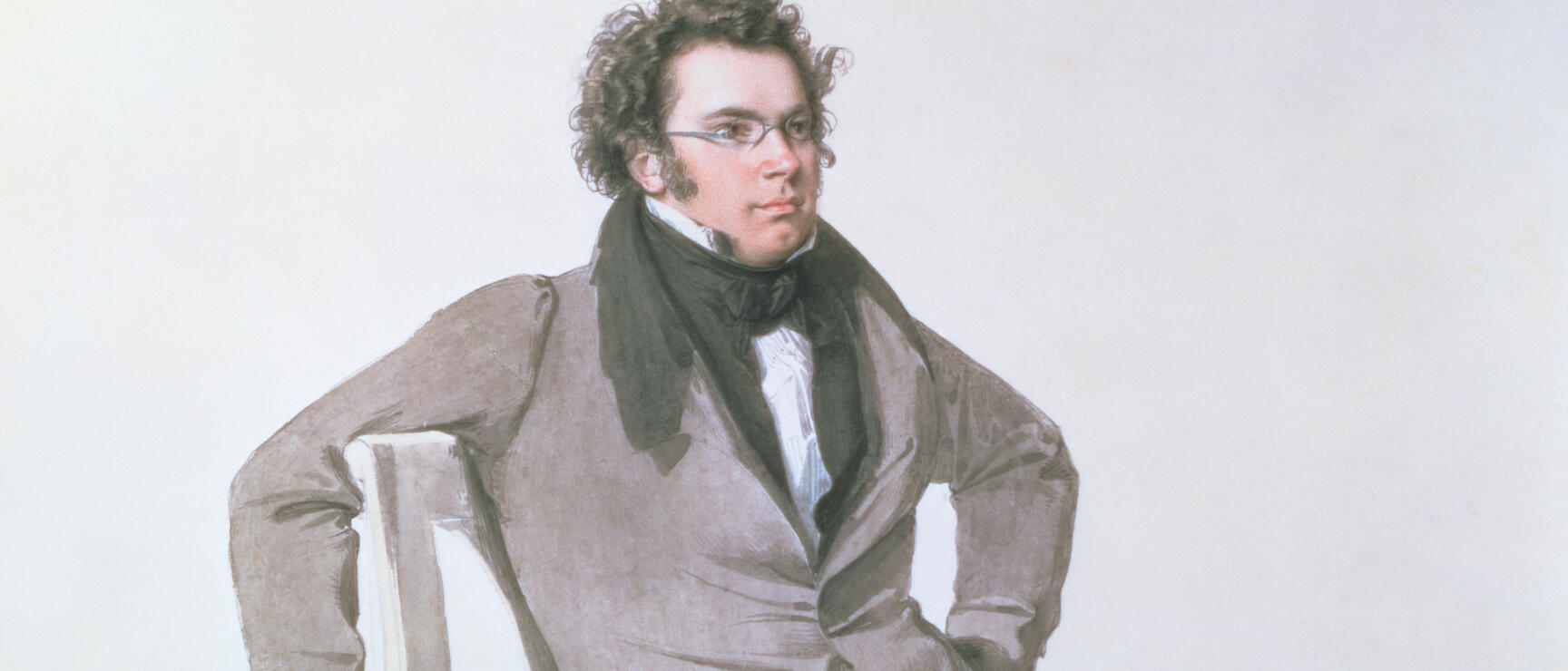
Franz Schubert
The master of melancholy
Franz Schubert was the epitome of a true Viennese – a city boy, a free spirit, and a genius. Born on 31 January 1797 in Himmelpfortgrund, a suburb of Vienna, he spent nearly his entire life in the city. It was here that Schubert developed a revolutionary musical language: one that not only expressed emotions but made them tangible through sound.
From a young age, Schubert began composing. By his teens, he had already written his first works. Over his short lifetime, he composed more than 600 songs, seven completed symphonies, chamber music, piano works, choral pieces, and operas. Despite facing numerous challenges – including a lack of stable employment, financial struggles, and poor health – music remained his driving force. As he famously said, "I was born for nothing but composing."
Schubert had an exceptional ear, finding poetry in the everyday. In songs like "The Trout," "The Erlking," and the poignant "Winterreise," he gave voice to deep, emotional experiences – powerful, clear, and timeless. His iconic "Unfinished Symphony," like many of his works, was only discovered after his death. This reflects Schubert’s ahead-of-his-time creativity.
While other composers sought careers at the royal court, Franz Schubert nurtured close friendships. In the intimate settings of living rooms, salons, and taverns, he participated in musical gatherings that would later be known as the "Schubertiades." Vienna was always the heart of his creativity, a place where he composed, laughed, and struggled.
Schubert's legacy only gained global recognition after his death in November 1828 at the age of just 31. Composers such as Robert Schumann, Felix Mendelssohn Bartholdy, and Franz Liszt discovered and popularised his music, and today Schubert is regarded as one of the key figures of early Romanticism. His work had a profound influence on the development of classical music.
Schubert’s influence has long since extended far beyond Vienna’s borders. Still, the soul of his music remains deeply connected to the city – to a life defined by a mix of melancholy, joy, and understated greatness.
Hardly famous during his lifetime, Franz Schubert was only celebrated posthumously. Illness, poverty, and the lack of premieres held him back. It was composers like Schumann and Mendelssohn who made his music immortal.
Franz Schubert from every perspective
In Schubert's footsteps in Vienna
Through the Schubert Quarter in Vienna
To experience the sound of Franz Schubert, the best place to start is here—in the 9th district, where it all began. The Schubert Quarter, surrounding Nußdorfer Straße, is more than just a residential area—it's a place rich in history, music, and everyday Viennese life.
In a house with a tiny kitchen, Franz Schubert was born in 1797. Today, his birthplace, now a museum, tells the story of his childhood and early compositions, with audio stations, original portraits, and his famous glasses.
Just a few steps away, Himmelpfortstiege invites a fresh perspective: cobblestone streets, a market hall, and a true neighborhood atmosphere—"Grätzl," the Viennese word for neighborhood.
At the heart of the quarter is Sobieskiplatz—an understated yet fascinating square that tells the story of community, city history, and the Vienna that shaped Schubert.
Between the historic buildings and the rhythm of everyday life, a unique atmosphere thrives—peaceful, charming, and authentic. With benches and a bubbling fountain, it’s easy to imagine Schubert and his friends strolling through this square two hundred years ago. Anyone who sits, observes, or walks here quickly realizes: Schubert isn’t just a name here—his music lives on.
In Schubert's footsteps in Austria
Listening to Schubert: concerts and festivals
Schubertiade(s)
Schubert was rather poor most of his life. He famously crashed with his friends, and for the longest time, he didn’t even have his own piano.
His music was mostly shared with a small circle of close companions, who gathered regularly for intimate musical evenings. These gatherings, known as "Schubertiaden," quickly became the talk of 19th-century Vienna.
Guests would dance, sing, play charades, drink, and recite poetry, while Schubert played his latest works on the piano. While he may have been shy in public, he came alive among friends.
This spirit lives on today at the Schubertiade Festival in Vorarlberg, which first took place in 1976 at the Palace of Hohenems. The aim was simple: to cement Schubert’s place in music history.
Today, the festival in Hohenems and Schwarzenberg is the largest of its kind. No other place offers as many song recitals with top interpreters and rising stars in such a short time. But at its heart, the festival keeps the intimate vibe of those early gatherings, focusing on the highest quality musical performances.